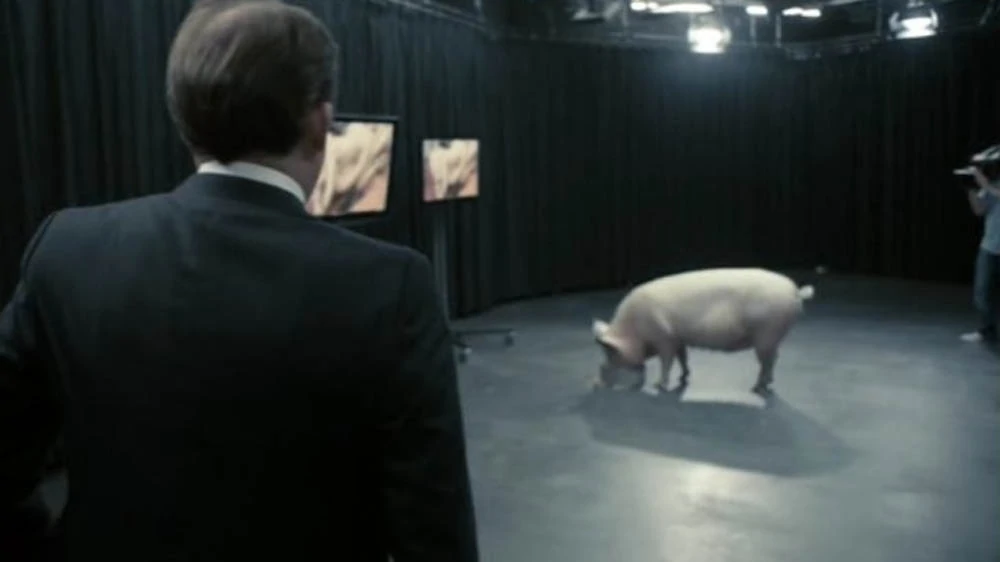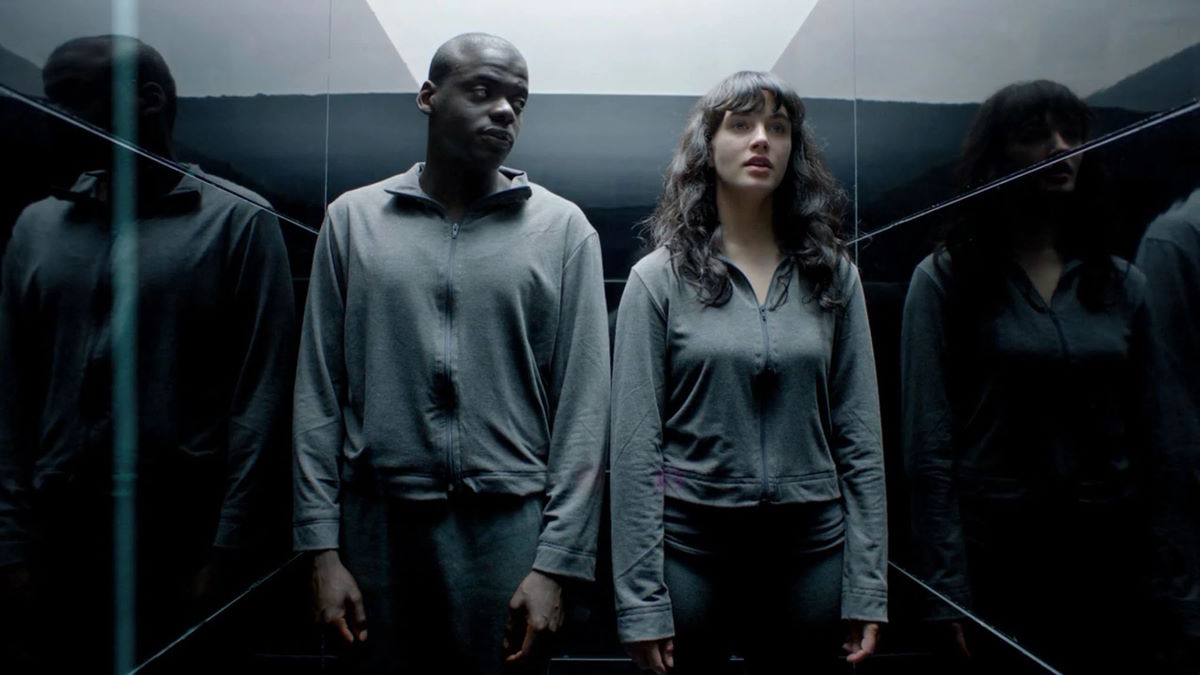Ethical implications of technology
“Black Mirror” is a British television anthology series that explores the dark and often unsettling consequences of technology in modern society. Each episode features a standalone story that takes place in a near-future or alternate reality, and deals with themes such as social media, artificial intelligence, virtual reality, and surveillance. The show often portrays the unintended consequences of technological advancements and raises ethical questions about their impact on human behavior and society as a whole. As such, “Black Mirror” serves as a cautionary tale about the potential dangers of technology and the need for responsible innovation.
Discussing the ethics of technology in the context of “Black Mirror” is important for several reasons. Firstly, the show portrays a world in which technology has advanced to the point of being able to fundamentally alter human experience and behavior. This means that the ethical questions raised by the show are not just theoretical or abstract, but are relevant to our contemporary world where technology is rapidly evolving and shaping our lives.
Secondly, “Black Mirror” presents a range of scenarios that highlight the potential dangers of technology, from the erosion of privacy and autonomy to the dehumanization of individuals in a society obsessed with performance and productivity. By exploring the unintended consequences of technology, the show prompts viewers to consider the ethical implications of new technologies and to think critically about how they may affect individuals and society as a whole.
Finally, the show encourages viewers to take an active role in shaping the future of technology by being aware of its potential pitfalls and advocating for ethical and responsible innovation. By discussing the ethics of technology in the context of “Black Mirror,” we can start a conversation about how to ensure that technology is used in a way that benefits humanity, rather than detracting from it.
Episode 1: “The National Anthem”

In “The National Anthem,” the first episode of “Black Mirror,” the British Prime Minister, Michael Callow, is faced with a horrifying dilemma. A mysterious terrorist group has kidnapped a beloved member of the royal family, Princess Susannah, and is demanding that Callow perform a humiliating and obscene act on live television in order to secure her release. With time running out and public pressure mounting, Callow is forced to make a difficult decision that will have far-reaching consequences for his career and personal life.
The episode’s premise revolves around the use of technology, specifically social media, to manipulate public opinion and influence political decisions. The terrorist group, which calls itself “The National Anthem,” announces its demands via a YouTube video that quickly goes viral, and people across the country start to weigh in on the situation through social media platforms like Twitter and Facebook. The episode explores the power of social media to amplify public outrage and shape public opinion, as well as the moral implications of using technology to manipulate people’s emotions and behavior.
Ethical questions raised by the episode’s use of technology
“The National Anthem” raises several ethical questions related to the use of technology, particularly social media, in the context of politics and public opinion. One of the key questions raised by the episode is the extent to which social media can be used to manipulate public opinion and influence political decisions. The terrorist group in the episode uses social media to create a sense of outrage and public pressure, forcing the Prime Minister to comply with their demands. This raises questions about the ethics of using social media to shape public opinion and influence political decisions.
Another ethical question raised by the episode is the relationship between privacy and security. In order to track down the terrorist group, the government engages in a massive surveillance operation that involves monitoring people’s online activity and phone calls. This raises questions about the extent to which governments can infringe on people’s privacy in the name of national security and public safety.
The episode also touches on the issue of consent and agency. The Prime Minister is forced to perform an obscene act on live television, which raises questions about whether it is ethical to coerce someone into doing something against their will, even if it is in the interest of public safety. Additionally, the use of technology to amplify public outrage raises questions about the responsibility of individuals to think critically about the information they consume and share, and to question the motives of those who seek to manipulate public opinion.
Overall, “The National Anthem” highlights the ethical complexities of using technology in the context of politics and public opinion, and raises important questions about the responsible use of social media and the balance between privacy and security.
“The National Anthem” suggests that technology can be used to manipulate public opinion, highlighting the importance of individual responsibility and ethical considerations in technological innovation. The episode serves as a cautionary tale about the potential dangers of technology and underscores the need for responsible and ethical use of technology in our modern society.
Episode 2: “Fifteen Million Merits”

In “Fifteen Million Merits,” the second episode of “Black Mirror,” society is structured around a system of virtual reality bikes that power the world’s energy supply. The citizens of this world spend their days pedaling on the bikes, earning “merits” that they can use to purchase food, entertainment, and other necessities. One of these citizens, Bing, dreams of escaping his life of drudgery and entering a talent show called “Hot Shot,” where contestants can perform in front of judges for a chance to become a celebrity and leave the bike-pedaling life behind.
The episode’s premise revolves around the use of technology as a means of control and exploitation. The virtual reality bikes are used to extract labor from people in exchange for basic necessities, with the promise of a chance at fame and fortune through the “Hot Shot” competition. The episode explores the psychological toll of this system, as well as the ethical implications of using technology to control people’s behavior and desires.
Ethical questions raised by the episode’s use of technology
One of the key ethical questions raised by the episode is the impact of technology on human agency and free will. The citizens in the episode are trapped in a system of virtual reality bikes that require constant pedaling in exchange for “merits” that can be used to purchase necessities. This raises questions about the extent to which technology can be used to control people’s behavior and desires, and the impact this has on their ability to make free and autonomous choices.
Another ethical question raised by the episode is the relationship between technology and labor exploitation. The citizens in the episode are essentially forced to pedal on the bikes in order to earn their keep, with no other options for earning a living. This raises questions about the ethics of using technology to extract labor from people in exchange for basic necessities, and the potential for technological advances to exacerbate existing social inequalities.
The episode also raises ethical questions about the role of technology in entertainment and fame. The “Hot Shot” competition, which promises a chance at fame and fortune to contestants, is portrayed as a means of social mobility within this world. However, the show is also exploitative, requiring contestants to perform degrading and humiliating acts in order to gain favor with the judges. This raises questions about the ethics of using technology and media to create a culture of celebrity and fame, and the potential for this to perpetuate harmful social norms.
Overall, “Fifteen Million Merits” raises important ethical questions about the impact of technology on human agency, labor, and entertainment. The episode highlights the potential for technology to be used for both good and bad, and the need for ethical considerations to be at the forefront of technological innovation.
“Fifteen Million Merits” suggests that technology can be used to control human behavior and exploit people for labor, highlighting the importance of ethical considerations in technological innovation. The episode serves as a cautionary tale about the potential dangers of technology in the context of entertainment, labor, and social control, and underscores the need for responsible and ethical use of technology in our modern society.
Episode 3: “The Entire History of You”

“The Entire History of You” is the third episode of “Black Mirror.” It takes place in a world where people have a “grain” implanted behind their ear that allows them to record and replay all of their memories. The episode follows a man named Liam, who becomes obsessed with his wife’s past relationship and uses the grain to replay memories of their interactions. As Liam’s obsession spirals out of control, the episode explores themes of memory, identity, and the impact of technology on personal relationships.
Ethical questions raised by the episode’s use of technology
“The Entire History of You” raises several ethical questions related to the use of technology, particularly in the context of memory and personal relationships.
One of the key ethical questions raised by the episode is the impact of technology on personal privacy and autonomy. The “grain” implant allows individuals to record and replay all of their memories, which raises questions about the extent to which personal memories should be private and protected from outside access. In the episode, Liam becomes obsessed with his wife’s past relationship, using the grain to invade her privacy and control her behavior. This raises questions about the ethical boundaries of personal privacy and autonomy in the context of technology.
Another ethical question raised by the episode is the impact of technology on personal relationships. The “grain” implant allows individuals to revisit and analyze their past interactions, which can have both positive and negative impacts on personal relationships. In the episode, Liam’s obsession with his wife’s past relationship leads to the breakdown of their marriage. This raises questions about the potential for technology to either enhance or damage personal relationships, and the need for individuals to use technology responsibly in the context of personal relationships.
The episode also raises ethical questions about the nature of memory and identity. The “grain” implant blurs the line between personal memories and objective reality, which raises questions about the impact of technology on our understanding of ourselves and our experiences. In the episode, Liam’s obsession with his past memories leads him to question his own identity and the authenticity of his experiences. This raises questions about the ethics of using technology to alter or manipulate personal memories and the impact this can have on our sense of self.
Overall, “The Entire History of You” raises important ethical questions about the impact of technology on personal privacy, relationships, and identity. The episode underscores the need for responsible and ethical use of technology in the context of personal relationships and highlights the potential dangers of technology in the realm of personal privacy and identity.
“The Entire History of You” suggests that technology can have a significant impact on personal privacy, relationships, and identity. The episode highlights the need for responsible and ethical use of technology in these contexts, and the potential dangers of technology in the realm of personal privacy and identity. It raises important ethical questions related to personal privacy, autonomy, and the impact of technology on personal relationships and identity. The episode serves as a cautionary tale about the potential negative effects of technology on personal relationships and underscores the importance of responsible and ethical use of technology in our modern society.
Episode 4: “Be Right Back”

“Be Right Back” is the fourth episode of “Black Mirror.” It follows a woman named Martha, who is grieving the loss of her partner Ash. She signs up for a service that allows her to communicate with an AI version of Ash, based on his social media history and other online interactions. As Martha becomes increasingly reliant on the AI version of Ash, she struggles with the ethical and emotional implications of the technology. The episode explores themes of grief, loss, and the impact of technology on personal relationships.
Ethical questions raised by the episode’s use of technology
“Be Right Back” raises several ethical questions related to the use of technology, particularly in the context of grief and loss.
One of the key ethical questions raised by the episode is the use of technology to replicate or replace human relationships. The service used by Martha allows her to communicate with an AI version of her deceased partner, raising questions about the ethics of using technology to replicate or replace human relationships. Martha becomes increasingly reliant on the AI version of Ash, blurring the line between what is real and what is simulated. This raises questions about the ethical implications of using technology to replace human relationships, and the impact this can have on personal growth and emotional wellbeing.
Another ethical question raised by the episode is the use of personal data and social media interactions to create AI versions of individuals. The service used by Martha is based on Ash’s social media history and online interactions, raising questions about the extent to which personal data should be used to create AI versions of individuals. This raises questions about the ethical boundaries of personal data and the potential for this data to be used in ways that violate personal privacy and autonomy.
The episode also raises ethical questions related to the nature of grief and the impact of technology on the grieving process. Martha’s reliance on the AI version of Ash highlights the potential for technology to interfere with the natural process of grief and the importance of allowing individuals to process loss in a healthy way. This raises questions about the potential for technology to either facilitate or hinder the grieving process, and the need for responsible and ethical use of technology in the context of grief and loss.
Overall, “Be Right Back” raises important ethical questions about the use of technology in the context of grief and loss, and the potential for technology to replicate or replace human relationships. The episode underscores the need for responsible and ethical use of technology in these contexts and highlights the potential dangers of technology in the realm of personal relationships and emotional wellbeing.
Episode 5: “White Bear”

“White Bear” is the fifth episode of “Black Mirror.” The episode follows a woman named Victoria, who wakes up with amnesia and is pursued by strange, masked individuals. As Victoria tries to piece together her memories and figure out what is happening to her, she discovers that the world she is in is a distorted reality, designed to punish her for her role in a horrific crime. The episode explores themes of justice, punishment, and the role of technology in society.
Ethical questions raised by the episode’s use of technology
“White Bear” raises several ethical questions related to the use of technology in society, particularly in the context of justice and punishment.
One of the key ethical questions raised by the episode is the use of technology to inflict punishment on individuals. In the episode, Victoria is trapped in a distorted reality and forced to experience a daily cycle of punishment for her role in a crime. This raises questions about the ethics of using technology to inflict punishment on individuals and the potential for this technology to be used in ways that violate human rights.
Another ethical question raised by the episode is the role of personal responsibility in the context of crime and punishment. The episode suggests that Victoria’s punishment is a result of her own actions, highlighting the importance of personal responsibility in the context of crime and punishment. However, the use of technology to inflict punishment raises questions about the role of personal responsibility and the potential for this technology to be used in ways that undermine individual agency and autonomy.
The episode also raises ethical questions related to the use of technology to manipulate perception and reality. The distorted reality in which Victoria is trapped is designed to manipulate her perception of reality and punish her for her role in a crime. This raises questions about the ethics of using technology to manipulate reality and the potential for this technology to be used in ways that undermine personal autonomy and freedom.
Overall, “White Bear” raises important ethical questions about the use of technology in the context of justice and punishment, and the potential for this technology to be used in ways that violate human rights and personal autonomy. The episode underscores the need for responsible and ethical use of technology in society and highlights the potential dangers of technology in the realm of personal freedom and agency.
Episode 6: “The Waldo Moment”
“The Waldo Moment” is the sixth episode of “Black Mirror.” The episode follows a comedian named Jamie, who voices a cartoon character named Waldo. Waldo is a blue bear who mocks politicians and their supporters during the election season. However, as the election approaches, Waldo gains more popularity and begins to challenge the establishment. Jamie is then forced to grapple with the consequences of his creation and the role of technology in politics. The episode explores themes of political satire, populism, and the intersection of technology and politics.
Ethical questions raised by the episode’s use of technology
“The Waldo Moment” raises several ethical questions related to the use of technology in politics and society.
One of the key ethical questions raised by the episode is the impact of technology on political discourse and democracy. In the episode, Waldo becomes a popular political candidate despite being a cartoon character, highlighting the potential for technology to shape and influence public opinion. The episode raises questions about the ethics of using technology to manipulate political discourse and the potential for this technology to undermine democratic values.
Another ethical question raised by the episode is the role of satire and comedy in politics. Waldo is initially created as a tool for political satire and commentary, but eventually becomes a serious political candidate. This raises questions about the ethics of using satire and comedy in politics and the potential for this type of commentary to have unintended consequences.
The episode also raises ethical questions related to the role of personal responsibility in the context of technology and politics. Jamie initially creates Waldo as a tool for his own amusement, but is forced to grapple with the consequences of his creation when Waldo becomes a political force. This raises questions about the ethical responsibility of individuals who create and shape technology and the potential for this technology to have unintended consequences.
Overall, “The Waldo Moment” raises important ethical questions about the impact of technology on politics and democracy, the role of satire and comedy in political discourse, and the ethical responsibility of individuals who create and shape technology. The episode underscores the need for responsible and ethical use of technology in the realm of politics and highlights the potential dangers of technology in shaping public opinion and undermining democratic values.
Conclusion
“Black Mirror” raises several main ethical questions related to the use and impact of technology on society, including:
- How does technology impact our personal lives and relationships, and what are the ethical implications of these impacts?
- What are the ethical implications of using technology to control and manipulate individuals and groups?
- What are the ethical implications of using technology to alter and enhance human abilities and characteristics?
- How does technology impact our understanding of reality, and what are the ethical implications of these impacts?
- What are the ethical implications of using technology to shape and influence public opinion and democratic processes?
Overall, “Black Mirror” raises important ethical questions about the role of technology in our lives and the potential consequences of its use. The show underscores the need for responsible and ethical use of technology and highlights the potential dangers of technology when used without proper consideration for its ethical implications.
The ethical questions raised by “Black Mirror” are highly relevant to contemporary society, as we are increasingly reliant on technology and its impacts are becoming more pronounced in our daily lives.
One area of relevance is the impact of technology on personal privacy and relationships. The rise of social media and other digital technologies has made it easier to connect with others, but has also created new vulnerabilities and risks related to privacy, cyberbullying, and online harassment. These issues are particularly relevant in light of recent controversies over data privacy and security breaches by tech companies.
Another area of relevance is the use of technology to control and manipulate individuals and groups. For example, the rise of algorithms and machine learning has enabled companies and governments to gather vast amounts of data about individuals and use it to influence their behavior, preferences, and beliefs. This raises important ethical questions about the extent to which individuals should have control over their own data and the ways in which it is used by others.
The use of technology to alter and enhance human abilities and characteristics is also becoming increasingly relevant. Advances in areas like genetic engineering and artificial intelligence have the potential to revolutionize the way we live and work, but also raise important ethical questions about the impact of these technologies on human dignity, autonomy, and equality.
Finally, the impact of technology on public opinion and democratic processes is a major area of concern. The rise of social media and other online platforms has made it easier to spread misinformation and propaganda, leading to the manipulation of public opinion and undermining democratic processes. This is particularly relevant in light of recent controversies over election interference and the role of social media in shaping public discourse.
Overall, the ethical questions raised by “Black Mirror” are highly relevant to contemporary society, highlighting the need for responsible and ethical use of technology and the importance of considering the potential consequences of technology on individuals, society, and democratic processes.
The ethics of technology is a complex and multifaceted issue, and “Black Mirror” offers a thought-provoking exploration of the potential consequences of technology on individuals and society. The show raises important ethical questions about the impact of technology on personal privacy, relationships, human dignity, and democratic processes.
One of the key takeaways from “Black Mirror” is the need for responsible and ethical use of technology. As technology continues to evolve and become more integrated into our daily lives, it is essential that we consider the ethical implications of its use and the potential consequences of our actions. This requires a willingness to critically examine the ways in which technology is shaping our lives and to take proactive steps to ensure that it is used in ways that promote the greater good.
At the same time, “Black Mirror” also highlights the potential dangers of technology when used without proper consideration for its ethical implications. The show serves as a cautionary tale about the risks of unchecked technological progress and the need for greater awareness and accountability around the use of technology.
Overall, the ethics of technology is an issue that will continue to be relevant in contemporary society, and “Black Mirror” offers a compelling and thought-provoking exploration of this important topic. By engaging with the ethical questions raised by the show, we can gain a deeper understanding of the potential consequences of technology on our lives and society and work towards a more responsible and ethical use of technology in the future.
As we conclude our analysis of the ethics of technology in Black Mirror, let’s not forget the impact of the media we consume on our worldview. While the show may leave us feeling unnerved and disheartened, it’s important to remember that there are plenty of other movies and TV shows out there that offer uplifting stories and valuable life lessons.
Let’s make a conscious effort to seek out and support media that promotes empathy, hope, and positivity. By doing so, we can not only enrich our own lives but also contribute to a culture that prioritizes the well-being of others. So, let’s continue to explore the vast world of movies and TV shows, but let’s do it with intention and a commitment to ethical consumption.


